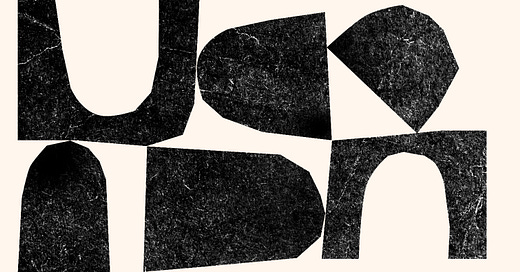PARASITE
My lover and I are undocumented. We look each other in the eye
and lie that this is the least of our problems.
Over the phone we plan the number of children we will have.
If she is born on American soil, we’ll name her Asa.
In Hebrew we are calling for divine intervention:
in Akan we are calling for war. My lover speaks hope politely:
Congress will pass an amnesty in our favour then I will take you
home to meet my parents. He himself has not seen
their wilted hands in a decade. Over the phone, we buy
a three-bedroom house on Jersey street with statuettes
we name Kofi Jeremy, Ama Josie, and Kwame James.
We hire a live-in maid who is undocumented to take care
of our child but we are kind to her because we understand.
We have been here before. We give her the weekends off to tend
to her lover and her child. We give her a bonus
during Christmas and Easter. We invite her to eat
with her hands at the dinner table and tell her it is good
to be in America: it is better to speak another language,
one you can curl under your tongue. When I started writing,
I was told not to speak of the things I love, not the man I loved
or the country I left behind, not the part of the body that loved
me in fraction – my joints shifting back into their place after
a walk with the blackbirds. I wake up before dawn to tend
to it and say to it and say εy yε, εy yε, I will not wear you out – not my mother.
I wrote about my mother. She was not the one a poem could hate.
I would not give it permission to do so. I kept the reflection of desire
in a pot of poems about my becoming, a woman
who could mistake a garden of irises for chives.
Then, who would listen to me put words
back together about how I was found?
On my way to the airport, to America, I looked outside the window
refusing a nap or a short conversation with the driver
who refused to carry my tears. I saw a mad man look
at himself in a mirror. First a smile and then a scratch,
then a tender gloss over his tangled beard.
He touches his reflection allowed by a scoop
of sunlight then a short gaze. A pause.
He does not see me look. I think a mad man knows
when to speak about love. He knows when someone watches.
He knows desire as a shape of a forget-me-not tree
or how to wait for the parts of himself he loves in a mirror.
AFUA ANSONG is the author of three chapbooks: Black Ballad (Bull City Press), Try Kissing God (Akashic), and American Mercy (Finishing Line Press). Her writings have appeared in the Cincinnati Review, Prairie Schooner, Four Way Review, Maine Review, and other journals. She is an Assistant Professor at the University of Rhode Island and the founder of the Adinkra Projects, which runs poetry workshops and supports emerging Ghanaian writers. She has received support from the MacColl Johnson Fellowship and the Vashon Artist Residency for her project Adinkra[farewell].
‘Parasite’ was first published in the winter 2024/25 print issue (no. 98) of Oxford Poetry, after placing second in the 2024 Oxford Poetry Prize, judged by Rachel Long. Illustration (top) by Anina Takeff, commissioned for the issue.
This year’s edition of the Oxford Poetry Prize is currently open for entries:
The prize is awarded annually by Oxford Poetry for a single unpublished poem and is open to poets writing in English around the world.
More from this issue:







